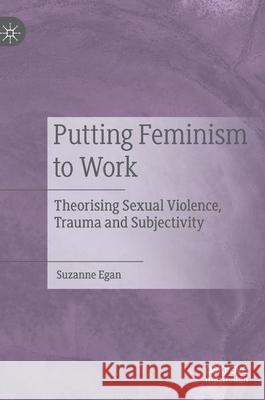Putting Feminism to Work: Theorising Sexual Violence, Trauma and Subjectivity » książka
topmenu
Putting Feminism to Work: Theorising Sexual Violence, Trauma and Subjectivity
ISBN-13: 9783030221089 / Angielski / Twarda / 2020 / 175 str.
Kategorie:
Kategorie BISAC:
Wydawca:
Palgrave MacMillan
Język:
Angielski
ISBN-13:
9783030221089
Rok wydania:
2020
Wydanie:
2020
Ilość stron:
175
Waga:
0.40 kg
Wymiary:
21.01 x 14.81 x 1.42
Oprawa:
Twarda
Wolumenów:
01
Dodatkowe informacje:
Wydanie ilustrowane











